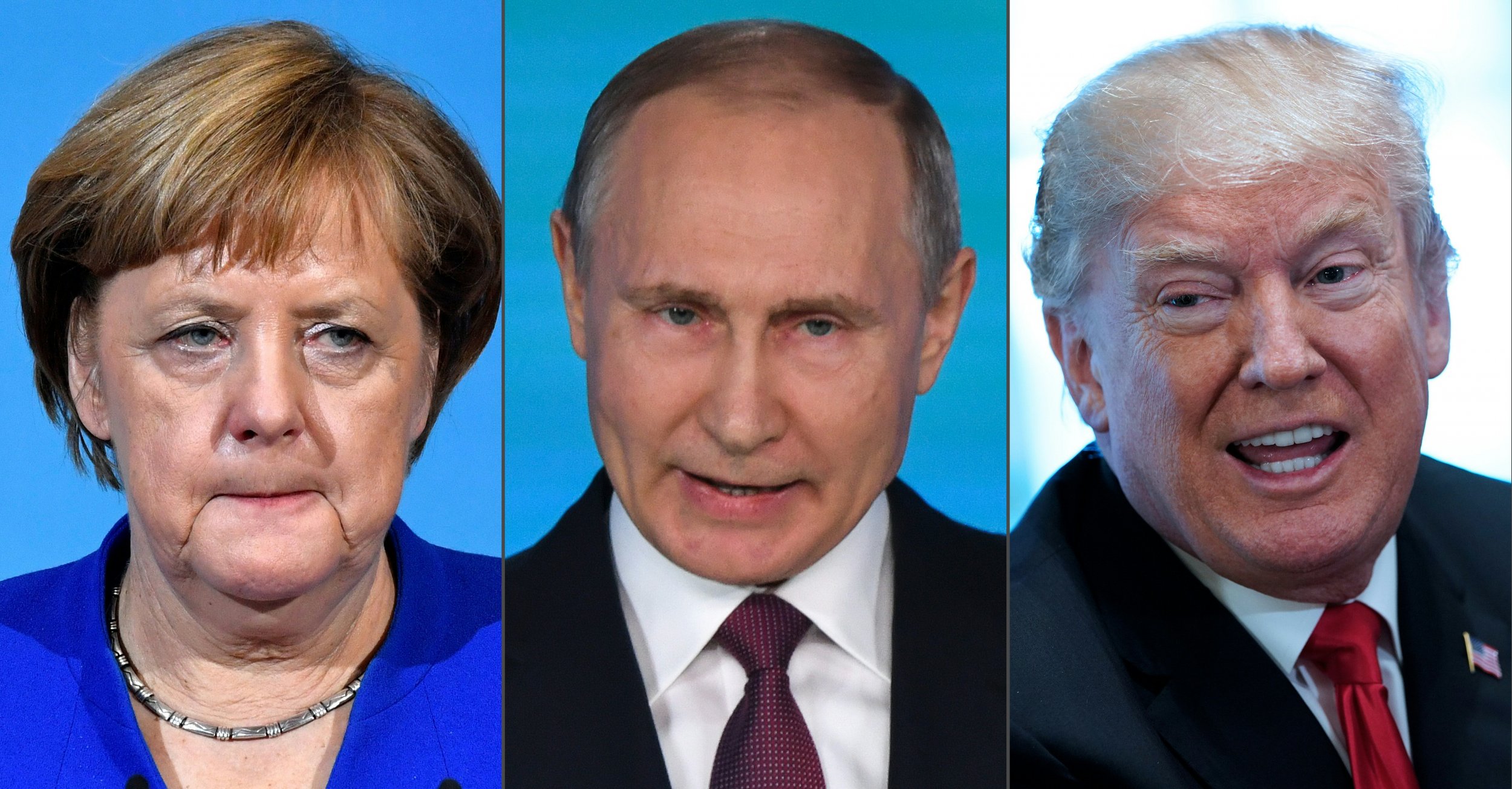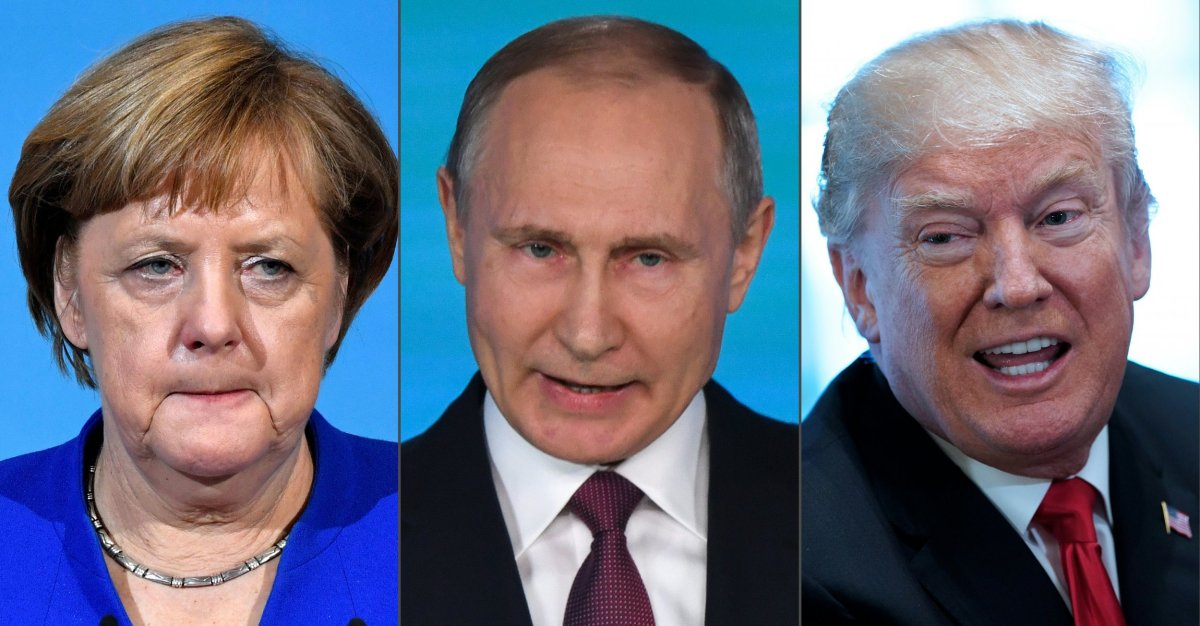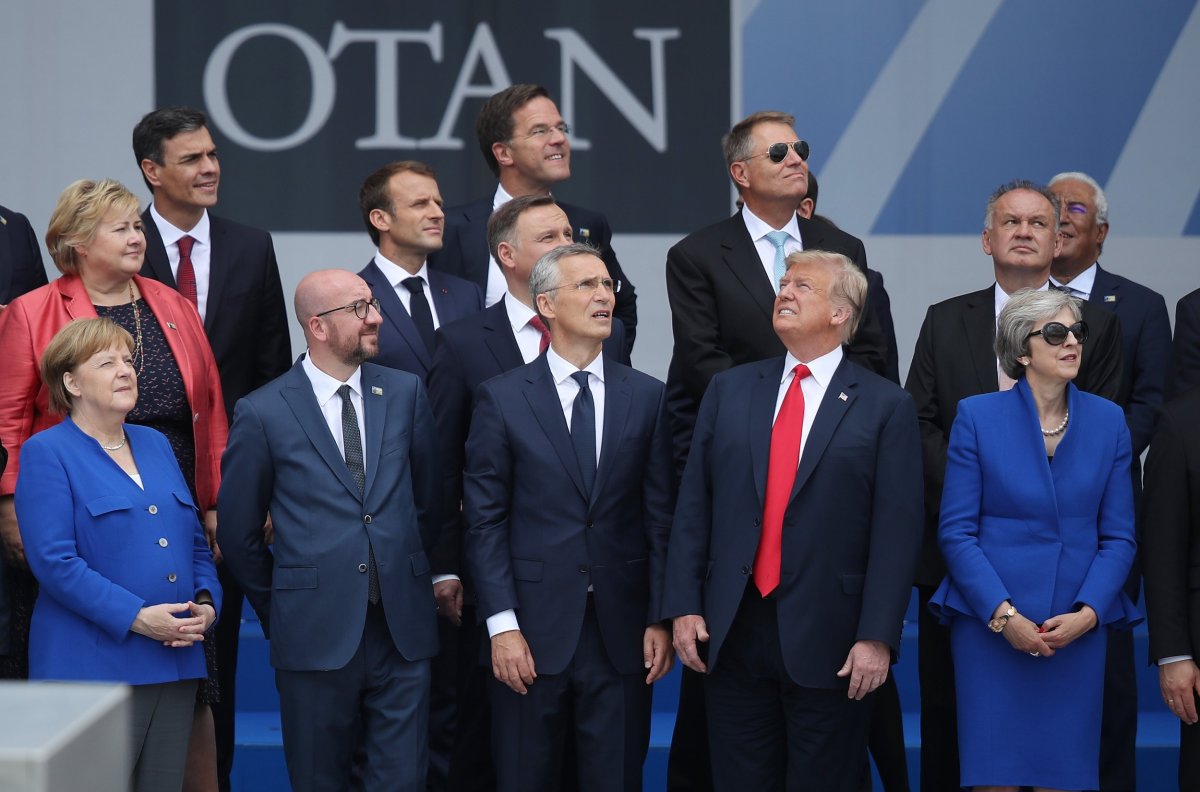
Nearly as many Germans feel threatened by the United States as they do by Russia, while less than half feel North Korea is a danger, according to a new poll.
A recent survey conducted by Germany's Forsa Institute for Social Research and Statistical Analysis alongside International Politik magazine and featured Saturday by the Bild tabloid found that 55 percent of respondents thought the U.S. was a threat to the country, just one point less than the 56 percent who said the same of Russia. The two countries have long competed for influence across Europe, and renewed tensions between them have again placed Germany in the middle of a transatlantic competition.
Only 27 percent of Germans said that North Korea was a threat, while 24 percent said Turkey and 23 percent named Saudi Arabia. A mere 16 percent expressed concern over an increasingly powerful China.

Berlin was a frontline theater of Cold War tensions following World War II, which featured a fleeting alliance of the U.S. and Soviet Union against Nazi Germany. The German capital was divided between Western and Soviet sectors, a schism made infamous by the Berlin Wall that ultimately fell as Moscow's socialist empire also began to collapse in 1989.
The 21st century has seen renewed tensions between the White House and the Kremlin, however, as Russian President Vladimir Putin seeks to restore his country's global position that atrophied with the dissolution of the Soviet Union. Washington has considered Moscow's growing international reach, especially since the 2014 annexation of Ukraine's Crimean peninsula in a disputed referendum, as a major threat to a West-dominated order, and the two have traded tit-for-tat measures that have escalated since the 2016 presidential election, during which the U.S. accused Russia of interfering in favor of now-President Donald Trump.
Prior to Trump's election, Germany was viewed as a staunch U.S. partner, but the Republican leader put forth divisive opinions on the NATO Western military alliance, to which the U.S. contributes by far the most in financial terms. Trump's call for Germany and others to pay more irked European leaders.
The recent survey found that 63 percent of 30-to-44-year-olds see the U.S. as the greater threat, followed by 58 percent of 45-to-59-year-olds. This is compared to 60 percent of those over 60 and 44 percent of 18-to-29-year-olds who described Russia as a more serious threat.
In terms of politics, the governing conservative Christian Democratic Union was more fearful of Russia, with 59 percent, as opposed to 45 percent naming the U.S. as a top concern, while the Greens alliance offered an equal 59 percent for both the U.S. and Russia. A small lead of 66 percent from the center-right Free Democratic Party also saw Russia as a threat to Germany, a contrast to 59 percent who mentioned the U.S. Of the center-left Social Democratic Party of Germany, 63 percent said the U.S. was a threat, while 59 percent said the same of Russia and some 82 percent of the Left Party warned about the danger of the U.S.—a significant margin over the 53 percent who considered Russia a more serious adversary.
Far-right Alternative for Germany supporters were more worried about the U.S., than Russia, with a margin of 57 percent to 38.

Attacks from Trump have prompted German Chancellor Angela Merkel and French President Emmanuel Macron to escalate calls for a pan-European military outside of the U.S.-led NATO framework. Macron echoed Merkel's support for "a true, European army" in November just days after Trump blasted his French counterpart for backing the same idea in order "to protect ourselves with respect to China, Russia and even the United States of America."
European powers such as Germany, France and the United Kingdom have also rallied against the U.S. in favor of an unlikely partnership with Iran, which signed a landmark 2015 deal to curb nuclear production in exchange for sanctions relief. The Trump administration accused Tehran of using the funds to support revolutionary Shiite Muslim groups abroad and develop ballistic missile technology, abandoning the agreement in spite of pleas from the three European powers as well as China and Russia.
Previous surveys have also found a decline in European trust in Washington under Trump's leadership. Last year, the Pew Research Center found that 10 percent of German respondents and 9 percent of French respondents expressed confidence in Trump, while the U.S. government-funded outlet Radio Free Europe saw 35 percent of Germans and 20 percent in France saying they trusted Putin.
Uncommon Knowledge
Newsweek is committed to challenging conventional wisdom and finding connections in the search for common ground.
Newsweek is committed to challenging conventional wisdom and finding connections in the search for common ground.
About the writer
Based in his hometown of Staten Island, New York City, Tom O'Connor is an award-winning Senior Writer of Foreign Policy ... Read more
To read how Newsweek uses AI as a newsroom tool, Click here.








